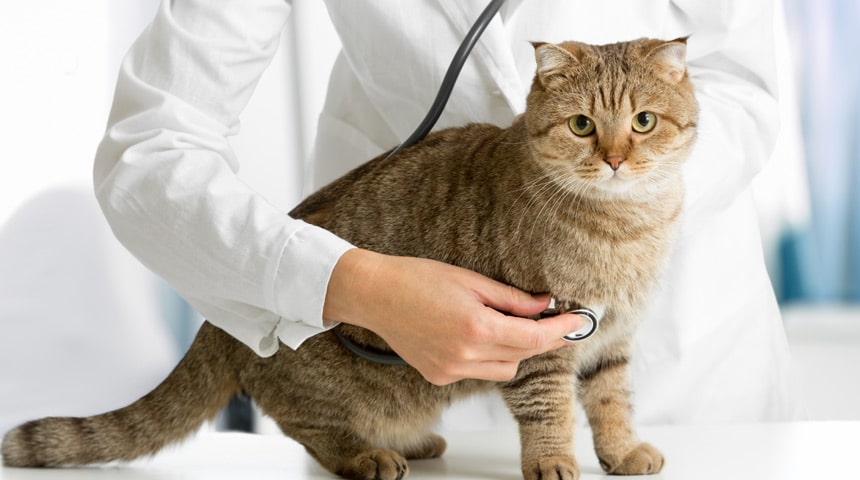
Ringworm is a fungal infection. The fungus infects skin, hair and claw tissue. This condition is very common in young animals in shelters, pet stores and catteries, as it is very contagious. This infection can also be transmitted to humans (zoonosis). Here are some tips for managing your cat and their environment in case of a ringworm infection:
Examine your Cat
Infected cats often show lesions on the skin as well as areas of hair loss. Some cats have little or no lesions. If you see these clinical signs, take your cat to your veterinarian for an examination.
Examine the Other Animals in your Home
Ringworm is highly contagious between animals of all species. It is transmissible by direct contact, but also by indirect contact via the environment. Be on the lookout for clinical signs that may appear on your other animals.
Examine the Skin of Humans in Your Home
In humans, clinical signs on the skin generally appear between 1 and 6 weeks after exposure to an infected animal. Monitor the appearance of lesions on the skin and consult a human health professional if necessary.
Medical Treatment
Consult your veterinarian to assess your cat's infection and obtain medication for the treatment of this infection. Follow the treatment instructions carefully for it to be effective.
Keep Animals Clean
It is important that animals at risk of being contaminated be kept clean and in a clean environment. In cats, grooming is an important defense and anything that limits their normal grooming increases the risk of infection.
Trim the Coat
This measure greatly reduces infectious particles in your cat’s fur, and reduces the risk of contamination to other animals and humans in the house. This also allows for better assessment of lesions and administration of topical medications, if needed.
Environmental Decontamination
An important part of managing a ringworm-infected animal is decontaminating its environment. Thoroughly clean everything that comes in contact with your cat (brush, carpet, litter box, toys, bowls, etc.). Also, vacuum regularly to mechanically remove particles from the environment. Diluted bleach (dilution of 1 ml of bleach in 10 ml of water) can be used to clean surfaces (walls, floors, etc.).

